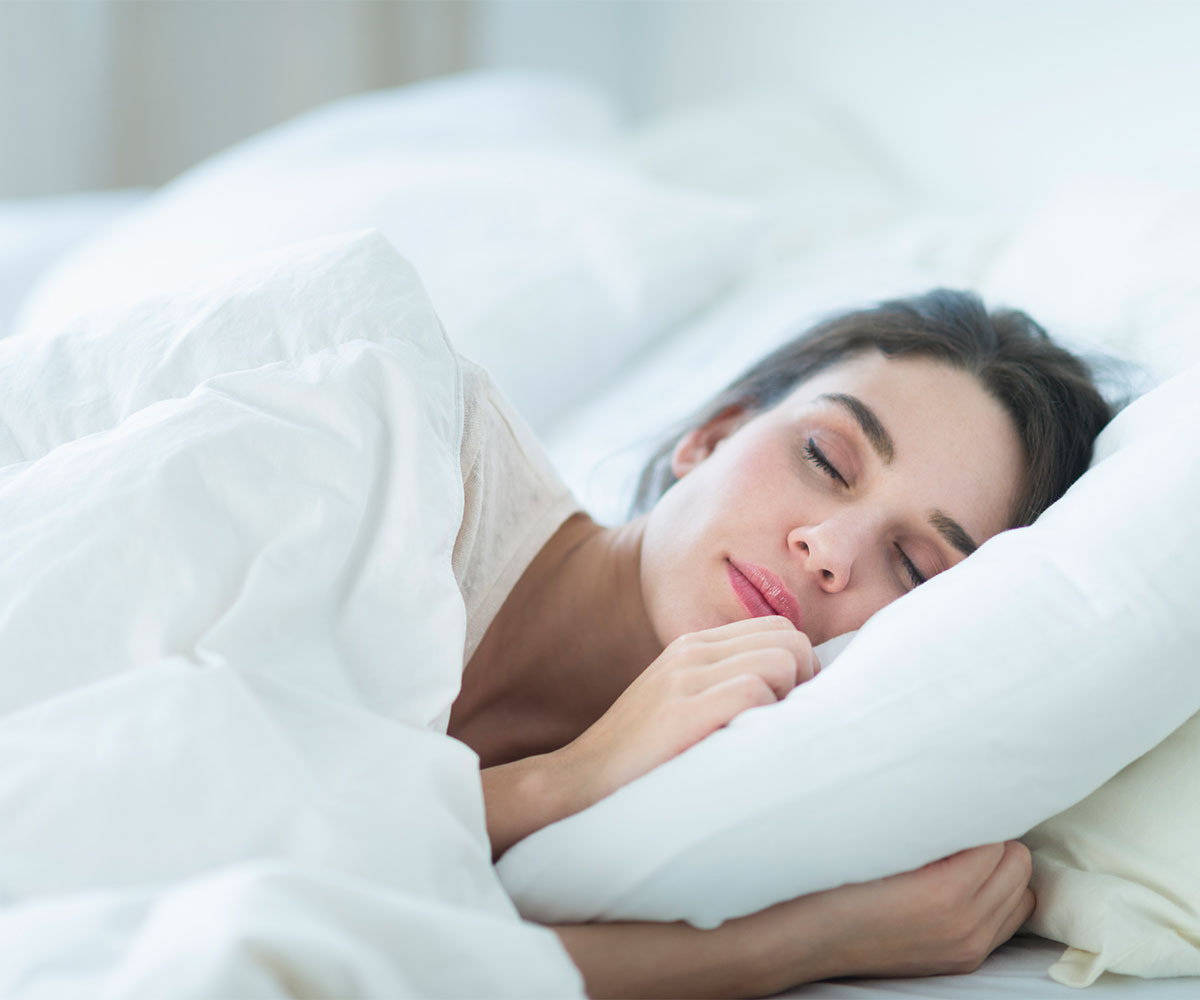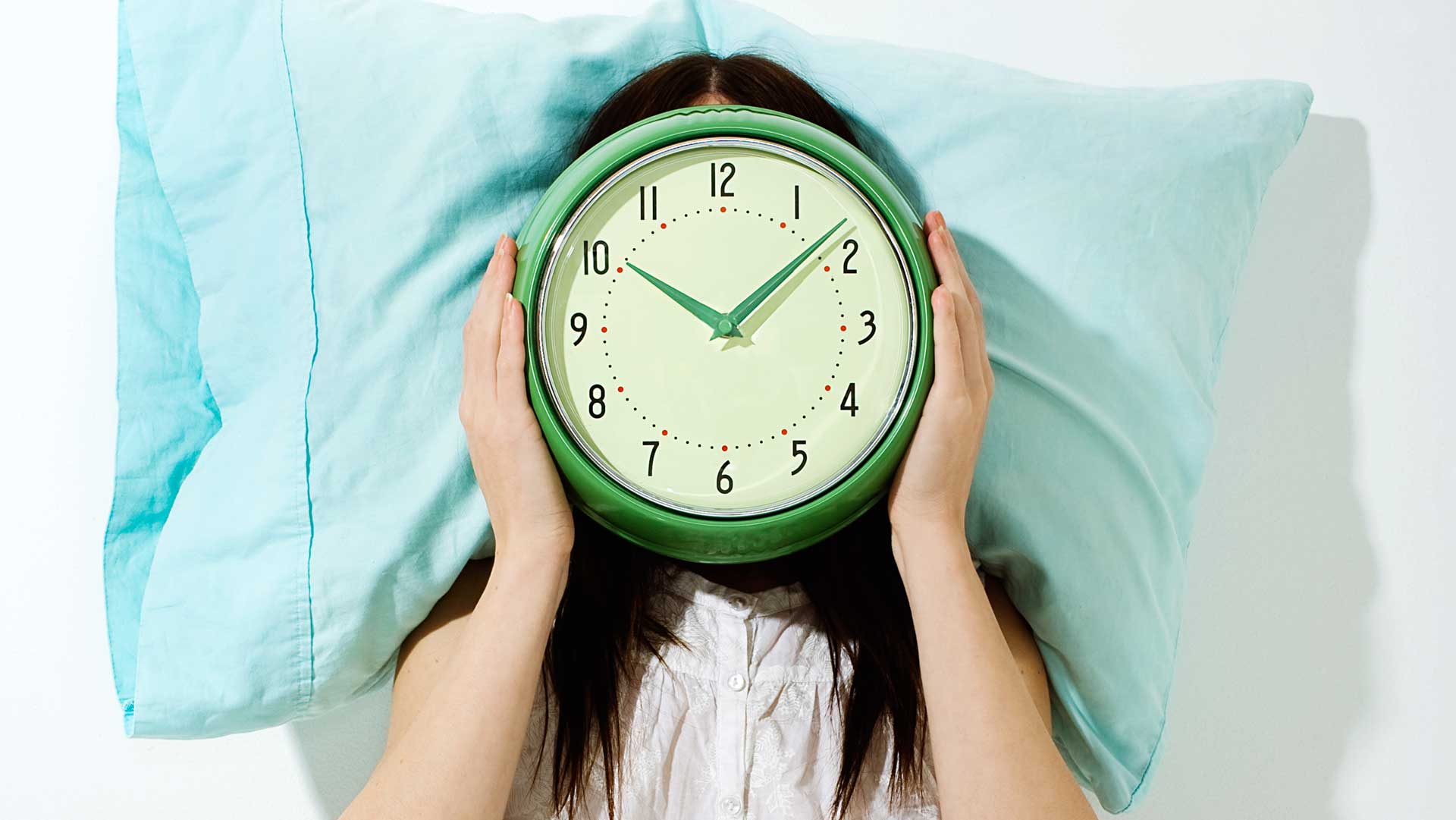We’re not sure if it’s the time of year, the humidity or the fact we’re really, really excited for the Christmas holidays (is it too soon to be counting down?), but we’ve noticed a huge spike in the number of people turning up to the Now To Love office with an extra large coffee and eye bags to boot.
The thing we all have in common? We’ve all been having trouble sleeping, and simply can’t turn off our minds at night.
In light of the fact our office is yawning for the better part of the day, we decided to speak to counselling psychotherapist, clinical hypnotherapist and parenting and relationship expert, Dr Karen Phillip, about what causes disturbed and broken sleep and what we can do to sleep better.
Why do you think we struggle to sleep on Sunday evenings?
Research reveals we are three times more likely to sleep badly on Sundays than other days. This is often due to late Friday and Saturday bedtimes and weekend lie-ins are popular when not having to get up to that dreaded alarm.
This is said to be due to the fact we are thrown off our normal sleep routine on the weekend. Too much alcohol or dreading the working week ahead may also affect your sleep.
Monday is the second hardest night to get to sleep, affecting 8 per cent of people us while Thursday is the easiest after we adjust back into our normal night-time routine.
Many struggle to get to sleep every night of the week. Why are so many people struggling to fall asleep?
It’s reported a massive 83 per cent of people struggle to sleep through the night. A study done by Dr. Teofilo Lee-Chiong and Dr. Mark Aloia states: “Sleep disorders are an escalating issue that affects millions of people every night. Sleep deprivation interferes with our brain’s ability to function and our body’s ability to operate. We are unable to concentrate, work or perform to our optimum level. We may become angry, distressed and anxious.”
We also know that blue light from devices has a detrimental effect on good sleep patterns. We are all advised to put away all blue device light a minimum of 30 minutes prior to sleep. This way our mind can adjust and allow our melatonin to step in to create sleep.

We can sometimes stress about not getting enough sleep – which causes us to get nervous and struggle to relax even more. How can we stop this vicious cycle?
When we are unable to fall asleep quickly we become anxious and fearful we will be awake for hours. We stress we won’t be able to manage our next day. The busyness of our mind is often a main reason we experience difficulty sleeping.
We struggle to fall asleep, become worried and stressed we can’t fall asleep which therefore creates tension preventing us from sleeping. A catch 22.
By using a specialised audio Sleep session your mind can be quietened to permit sleep to naturally occur. This is far better than relying on alcohol or medications which all have detrimental effects upon our mind and body.
Sleep deficiency can cause you to have trouble making decisions, solving problems, controlling your emotions and behaviour. Sleep deficiency also has been linked to depression, suicide and risk-taking behaviour.

Are there any helpful things we can do to get a restful night’s sleep each night?
Taking charge of your pre-sleep routine is an excellent way to manage sleep. Stop watching action shows and remove blue light at least 30 minutes prior to sleep. Relaxing allows melatonin to be released allowing your mind and body to prepare for sleep.
Often people respond extremely well to a Sleep audio session that allows the mind to be taken into a comfortable relaxed state where our mind can drift naturally off into a deep restful sleep. This is far better than laying there with the television or radio blaring away which can make the subconscious mind busier as it sleeps.
Why is sleep so important for our health?
Sleep plays an important role in your physical health. Sleep is involved in healing and repair of your heart and blood vessels. Ongoing sleep deficiency is linked to an increased risk of heart disease, kidney disease, high blood pressure, diabetes, and stroke.
Sleep is essential for the subconscious mind to process all the day’s events. If it remains busy it is prevented from accomplishing this necessary task. Watching TV or listening to radio to fall asleep can also prevent the mind quietening therefore preventing needed processing of the day’s events.
Sleep helps your body to support healthy brain function and maintain your physical health. In children and teens, sleep helps support growth and development. Studies show that a good night’s sleep can improve the ability to learn.
Sleep deficiency also increases the risk of obesity. One study of teenagers showed that for each hour of sleep lost, the odds of becoming obese increased. Sleep deficiency increases the risk of obesity in other age groups as well.
Getting enough sleep helps you function throughout the day. People who are sleep deficient are less productive and take longer to finish tasks, have slower reaction times and make more mistakes. Lack of sufficient sleep can also affect how your body reacts to insulin, which can result in a higher than normal blood sugar level, which may increase your risk of diabetes.

Do we really need 7-8 hours each night?
Research shows that consistently getting seven to eight hours of sleep per night is beneficial. Any more or less can increase your risk for serious health issues. Getting enough quality sleep is also key to a healthy lifestyle.
When you sleep soundly, your immune system releases compounds called cytokines. Cytokines have a protective effect on your immune system helping you to fight inflammation and infection. Without enough sleep, you may not have enough cytokines to keep from getting sick. The healthy amount of sleep for the average adult is around seven to eight hours each night.
Researchers in the United Kingdom and Italy analysed data from 16 separate studies conducted over 25 years, covering more than 1.3 million. They published their findings in the journal Sleep1.
Those who sleep for less than six hours a night were more likely to experience a premature death. Researchers also found that people who reduced their sleep time from seven hours to five hours or less had a higher risk of illness and death.
Sleep plays a vital role in good health and well-being throughout your entire life. Getting enough quality sleep can help protect your mental and physical health, your quality of life, and safety. Sleep deprived people can feel angry and impulsive, have mood swings, feel sad or depressed, or lack motivation.
Dr Karen Phillip is a counselling psychotherapist, clinical hypnotherapist and parenting and relationship expert. You can find more information about her work here.


